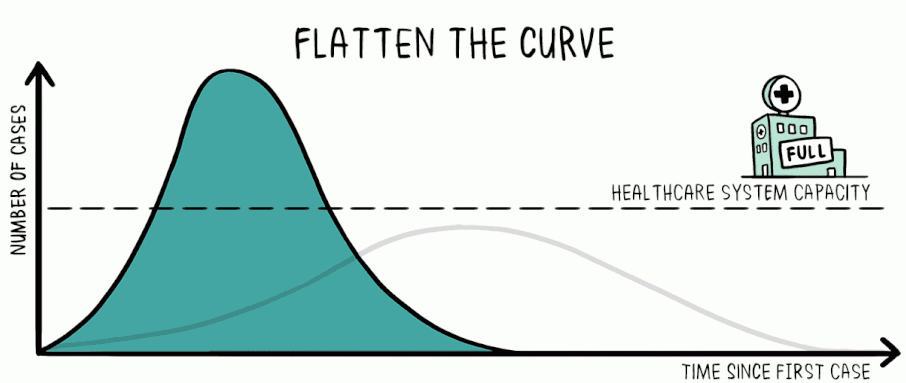ASTMH Annual Meeting 2025
blogPredicting the Future: The Importance and Limitations of Outbreak Science
By: Rebecca Mandt, Phd Candidate, Harvard University

During the past several months, the entire world has learned about outbreak models, such as those which illustrated the impact of ‘flattening the curve’ of COVID-19 cases. At the TropMed20 symposium, ‘Ahead of the Curve: Challenges and Opportunities for Outbreak Science’, panelists discussed the value—and limitations— of modeling, and how outbreak science can be improved. The panel featured Dr. Rebecca Smith of University of Illinois Urbana-Champaign, Dr. Michael Johansson of the US Centers for Disease Control and Prevention, Dr. Yang Yang of the University of Florida, and Dr. Samuel Scarpino of Northeastern University's Network Science Institute.
All the panelists agreed that models are important tools for making predictions about what will happen during an outbreak and for informing what public health strategies will be most effective. They also recognized that models are not perfect, with Dr. Smith noting that the people who are most skeptical of models are modelers themselves. Comparing the results of multiple independent models is one way to increase confidence in model predictions. However, as noted during the Q&A, there are some things that models may never be able to account for, such as unexpected human behavior like anti-masking, or the impact of politics. Another theme was the importance of rapid open data sharing. Dr. Scarpino discussed how open data repositories contributed to public health decision-making during several recent infectious disease outbreaks. He stressed the need to continue building data sharing infrastructure not just during outbreaks as they occur, but as a way to prepare for the outbreaks of the future, and ideally to prevent pandemics from occurring. He also teased a new initiative called Global.health—a cloud-based platform for open global public health data—which will be launching soon.
More Information: https://www.abstractsonline.com/pp8/#!/9181/session/205
Related Posts
By: Matthew Davis, Burness